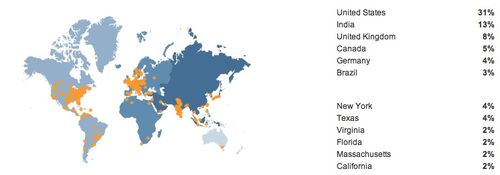What Is The Net Native Model?
My partner Brad is fond of reminding us at USV that taking the offline model for something and porting it to the web is not often the best way to build a business online.
John Markoff's piece in the New York Times on online education got me thinking about that this morning. MOOCs are all the rage in the online ed world these days. And most of the MOOCs I have used remind me a lot of the traditional classroom model of teaching. The question I am noodling is if there is a better way to teach when you have tens of thousands of people wanting to learn something that you can teach them.
John contrasts the MOOC model to our portfolio company DuoLingo in his piece. He says:
there are early indications that the high interactivity and personalized feedback of online education might ultimately offer a learning structure that can’t be matched by the traditional classroom.
Although DuoLingo was built by one of the most popular teachers at Carnegie Mellon, there are no teachers in their learning model. It's all software, content, and users. Now maybe language learning is easier to teach this way than other things. I don't have a fully formed opinion on this. I am just thinking outloud.
But what we have seen over and over again is that taking a model that was optimized for the analog world and porting it to the internet is almost always suboptimal. And that the person or team that finds the optimal model for the internet is almost always the one who ends up with the big win.
And I think that will be true in education as well.


